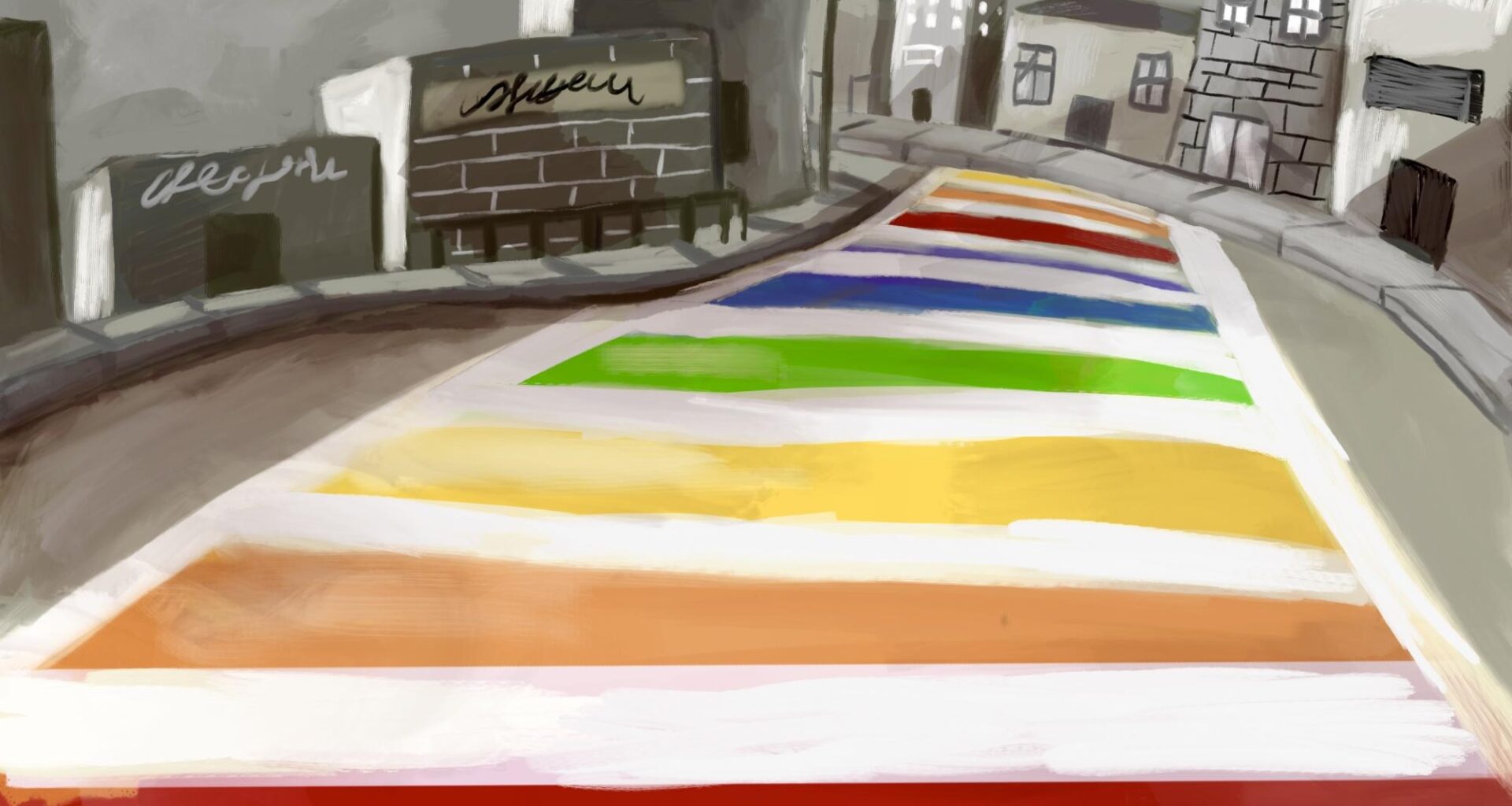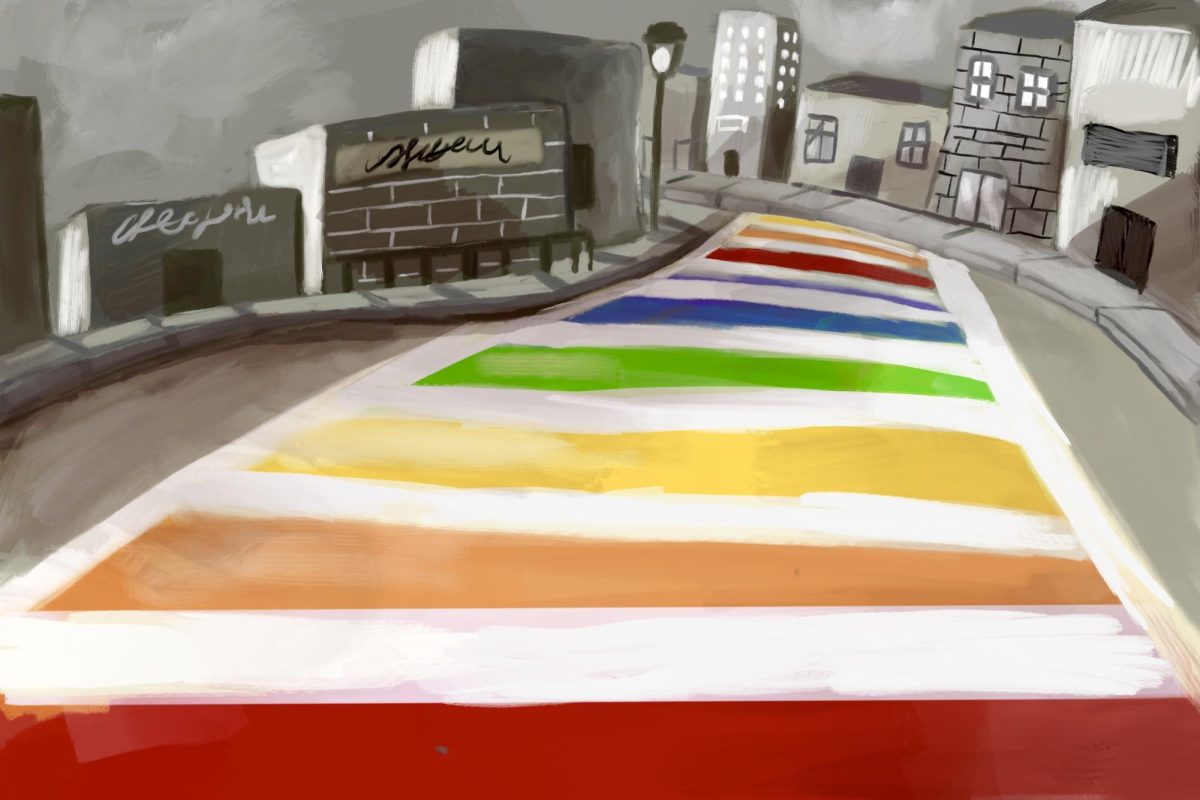Gov. Greg Abbott directed the Texas Department of Transportation to ensure Texas counties and cities remove displays of political ideologies from public streets on Oct. 8. In a press release, Abbott stated any cities that do not comply with the federal road standards will face consequences, including the withholding or denial of state and federal road funding and suspension of agreements with TxDOT. This comes after threats from both Florida and the Trump administration against rainbow crosswalks in particular.
Following Abbott’s broad press release, U.S. Transportation Secretary Sean Duffy responded by saying that “roads are for safety, not political messages” and “(encouraged) the rest of America’s governors to do the same.”
“To keep Texans moving safely and free from distraction, we must maintain a safe and consistent transportation network across Texas,” Abbott said in his initial release.
Such a focus on safety, however, does not explain politician’s emphasis on rainbow crosswalks and other LGBTQ+ murals which puts other street art, even Texas’ very own crosswalk, at risk.
Contrary to both Duffy and Abbott’s beliefs, colorful murals on streets and crosswalks actually substantially increase safety compared to their plain road counterparts. Bloomberg Philanthropies and Sam Schwartz Consulting conducted a study on 17 art sites nationwide that were implemented for over two years. Compared to accident rates before the murals were painted, crashes involving pedestrians or cyclists decreased by 50% and crashes that led to injuries decreased by 37%. The report also found a correlation between colorful murals and a 27% increase in drivers yielding to pedestrians at crosswalks.
The directives from the state are not truly in the name of safety or any other public good. Rather, it is a continuation of attempted limitations by the far-right GOP on the expression of individuals whose ideals do not align with their own.
“Greg Abbott has shown wanton disregard for the free speech of Texans, whether that is arresting student protestors for calling attention to an ongoing genocide, publicly supporting the firing of professors like Tom Alter at Texas State and now — almost comically — putting an end to rainbow crosswalks,” said Samuel Law, a doctoral candidate in the department of anthropology.
If Austin fails to comply, Mayor Kirk Watson issued a statement noting that hundreds of millions of dollars in grants are at risk, including funding for Transportation and Public Works, Austin-Bergstrom International Airport and Project Connect.
“Austin will comply with state law and we’ll demonstrate our love for all Austinites in other ways,” Watson said in a message to the Austin City Council board. “We have a lot of pride. We’ll live it and we’ll show it.”
However, this answer is unsatisfactory in addressing the root of the issue.
“Those that seek to remove the rainbow crosswalks and Black Lives Matter murals are expressing their disregard for the people and history these paintings represent,” said Cary Cordova, associate professor in the department of American studies. “I am glad our city government is thinking about other options to commemorate these public spaces, but current events suggest this form of blackmail will only continue and that whatever other proposals come to the fore will be subjected to these same pressures. Compliance now is only likely to show that this form of blackmail works.”
While finding alternative ways to showcase pride is possible, the city of Austin should not succumb to financial intimidation. In no world should we continue to obey a government that is threatening to cut necessary funding in exchange for compliance with limitations on speech against their values.
Gray is an anthropology, government and economics junior from Baytown, Texas.


